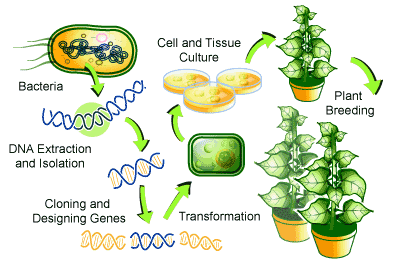Transgenic plants used as bioreactors to produce biodegradable plastics represent an exciting intersection of plant biotechnology and sustainable materials science. This approach leverages the plant’s ability to produce valuable polymers that can be used as alternatives to conventional plastics. Here’s a detailed overview of how transgenic plants can be employed to produce biodegradable plastics:
Overview of Biodegradable Plastics
Definition: Biodegradable plastics are materials that decompose through biological processes into non-toxic components. They are designed to reduce environmental impact compared to traditional petrochemical plastics, which persist in the environment for hundreds of years.
Types of Biodegradable Plastics:
- Polyhydroxyalkanoates (PHAs): A class of biodegradable plastics produced by microbial fermentation.
- Poly(lactic acid) (PLA): Made from fermented plant sugars, often used in food packaging and other applications.
Starch-based Plastics: Derived from plant starches and used in various applications, including packaging and disposable cutlery

